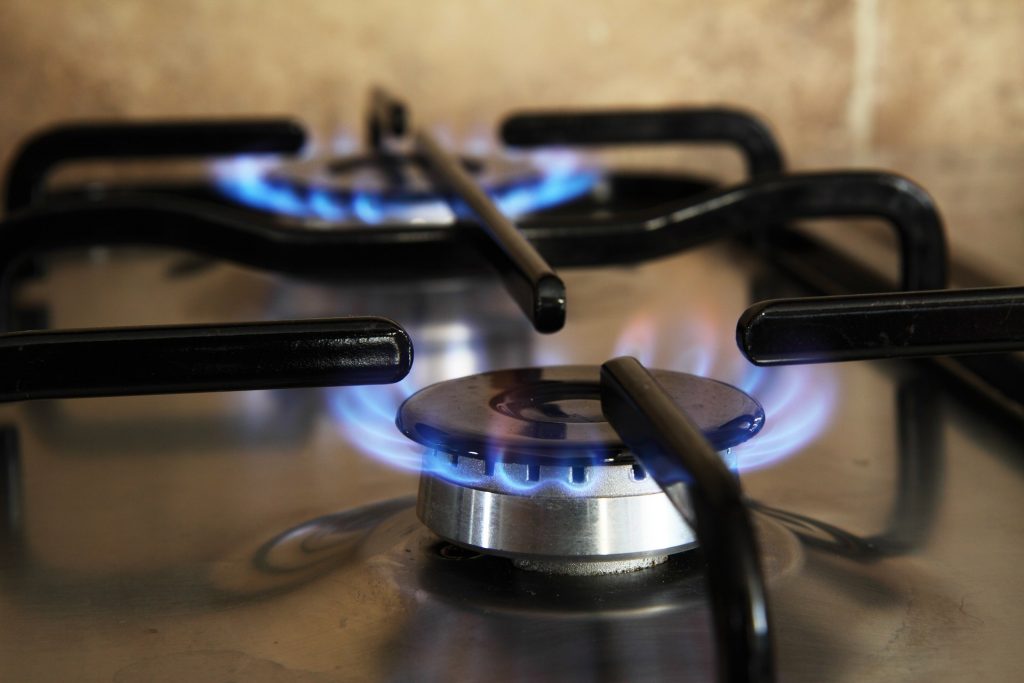
Teaching your kids to cook is important as it’s a skill they’ll eventually need as they get older and move out into the world. Even if you don’t consider yourself to be a great cook, you can view this ais an opportunity to learn together. Enroll in a cooking class or one of the many local community programs aimed at healthier eating that are gaining popularity across the country.
Teaching your children fire safety before letting them loose in the kitchen is essential. According to the National Fire Protection Agency, cooking equipment is the leading cause of home fires and fire injuries. Of those fires, it says, “ranges or cooktops accounted for the majority (62%) of home cooking fire incidents,” which means that letting your kiddos use the stove can be dangerous if they’re not also safety conscious. To ensure that they are, do your research and considering following this Family Fire Safety Checklist:
Test Your Smoke Detector Regularly
Depending on your cooking abilities, you may be doing this by accident on a regular basis but if you haven’t set the smoke detector off in longer than a week, you should check it again before teaching your kids to master the kitchen. If you tend to forget this overlooked task, take the fire department’s advice: change your batteries and check your detector when the time changes. No time change where you live? Maintain them on Easter and Halloween – and add it to your calendar so it isn’t neglected.
Make Sure Kids Understand Danger
Living with teenagers? Then there’s a good chance this has happened to you: Your kid puts something in the oven, whether it be chicken nuggets or frozen pizza, and then they wander off and forget it. They’re either distracted by their phone or simply doze off, curled up at midnight, binge-watching whatever, and waiting for their food to be done. And when you realize that the house is heating up, you pull the charred mess from the oven, and yell, “You could’ve burned the house down!” While teenagers are naturally dismissive and may think you’re being dramatic, you’re actually spot on. Leaving any food unattended while it cooks is the leading contributing factor in fires and fire deaths so it’s important for teens (who think life gives infinite do-overs and that they’re invincible) to understand the severity of leaving food in the oven – and on the stove. If your teen shrugs it off as no big deal, you are well within your rights to revoke their stove/range privileges.
Fire Extinguisher 101
Fire extinguishers are simple enough to use without training: you pull the pin, you aim at the base of the fire, and you spray. But in the midst of a growing kitchen fire, panic can quickly overtake any reason or sensibility you’d normally expect from yourself or your teen. Sure, standing in your kitchen pretending to successfully fight make-believe fires seems silly. That is until one actually happens and snuffing it out feels like second nature. Not convinced? According to a survey conducted in 2002, looking at over 2,600 house fires, in 81.5% of cases, the portable extinguisher successfully extinguished the fire, and in 74.6% of the cases the fire department was not required to attend.
Fire Fighting Kitchen Hacks
Of course a fire extinguisher isn’t the only way to put out a fire:
- Put a lid on it. If a fire breaks out in a pan, putting the lid on it will suffocate the flames. Just be careful to keep your hand and arm out of harm’s reach.
- Use salt or baking soda – never water – to extinguish a grease fire. Be sure teens can tell the difference between baking soda and flour, since flour is likely to explode in this instance.
- Never swat at a fire with towels or potholders. Instead smother the fire with a wet dish towel.
Your Emergency Plan
Once your kids begin cooking on their own, you’ll not only want to make sure that everyone knows what to do to stop a spreading fire, but what the family emergency plan is for fires, should one spread and refuse to go out. Include all possible exits, who will retrieve infants and anyone with limited mobility, a meeting place within sight but that is far enough away from the house that explosions from aerosol cans and chemicals are not a danger, and who will be tasked with alerting a neighbor who can call emergency responders.
But no emergency plan will work without practice and preparation. Hit that smoke detector button once in a while as a surprise and consider your family’s response times. If your teen or pre-teen emerges from their room twenty seconds later, confused and irritated by the noise, you’re gonna need to practice. Ignore the eye-rolling and try it again.
